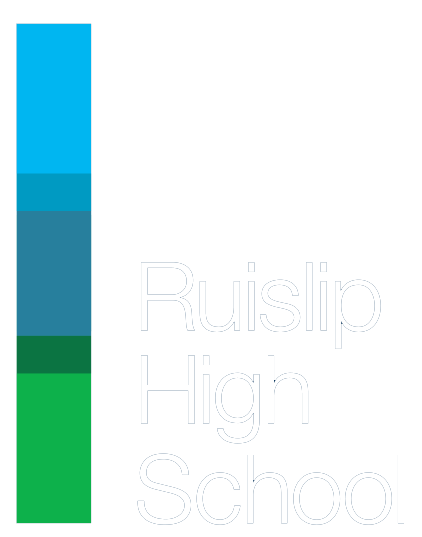Science
The science department at Ruislip High is dedicated to fostering and building upon the enthusiasm and curiosity that all children have about the natural world. Our aim is to inspire students through a range of exciting learning activities which promote the scientific method, enabling students to assess different forms of evidence and develop their own ability to draw valid conclusions.
Everything that students learn from Year 7 all the way through to Year 13 fit into our Big Ideas in Science:
- Forces change motion
- Energy cannot be created or destroyed
- Living organisms are made of individual cells
- The diversity of organisms is a result of evolution
- Everything is made up of particles
Big ideas scientific method
- In science, for every effect there is one or more causes
- Scientific explanations, theories and models are the best fit for the facts known at a particular time
- Applications of science often have ethical, social, economic and political implications
In Years 7 and 8, students develop the skills to carry out their own scientific enquiries and learn how science is used to answer questions. To help the students understand the concepts of variables and relationships, we follow the Let’s Think (CASE) programme. Core concepts from the Big Ideas are introduced giving the students the foundations for their experimental work.
Through years 9, 10 and 11, the Big Ideas are translated into the requirements of the distinct science pathways that students can follow for GCSE: combined trilogy science and separate triple science. All of these qualifications are provided by AQA.
Post-16, Ruislip High offers A-level studies in biology, chemistry and physics. Here, the Big Ideas are focussed into their particular areas. The knowledge and skills that have been developed over Key Stage 3 and 4 are refined so that our sixth form students study as actual scientists: hypothesising, experimenting and analysing data. All three sciences continue to prove extremely popular with students. Many go on to study science or science based degrees at university having been equipped with the tools to understand the scientific process.

